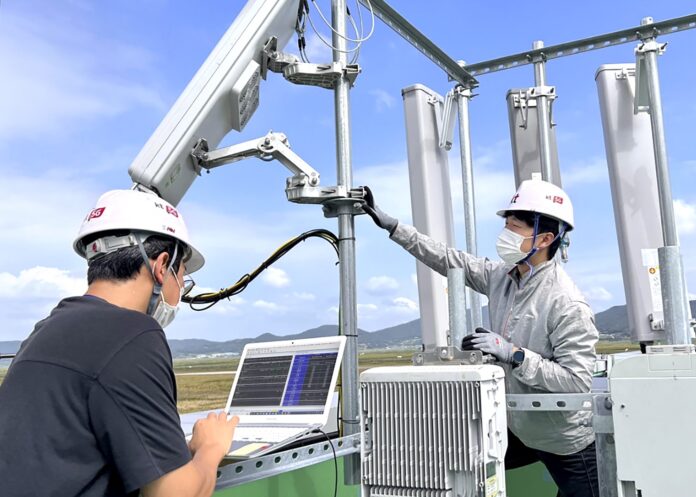KT noted that this specific 5G network will be used in the first phase of the K-UAM Grand Challenge initiative
South Korean carrier KT said it has completed the construction and performance verification of a 5G network exclusively for urban air mobility (UAM).
The Korean government has worked out a “K-UAM Grand Challenge” program to demonstrate the safety of air taxis and test traffic management functions in two stages. In the first stage, demonstration flights will be conducted at a flight test center in Goheung to verify UAM infrastructure and communication relay platforms. The second-stage demonstration will be conducted in urban air corridors.
KT noted that this specific 5G network will be used in the first phase of the K-UAM Grand Challenge initiative. In the trial phase, KT plans to provide communication services necessary for UAM operation in the corridors and “vertiports” around the Goheung Aviation Center.
KT aims to provide stable 5G services at the altitude of UAM operation from 300 to 600 meters, leveraging “optimal 3D coverage design” and network slicing within the network. “The construction of this air network is the first step to lead the UAM market, which is attracting attention for future mobility,” said Jong-sik Lee, managing director of KT InfraDX research center. “We will continue to work hard to revitalize the domestic UAM business,” the executive added.
KT highlighted that its 3D coverage design technology ensures that there are no coverage holes or interference at all altitudes at which the UAMs operate.
KT also said that this 5G air network will be used by the K-UAM consortium, but noted that it is also open to UAM-related small and medium-sized aircraft manufacturers and operators. Through test flights and cooperation with these companies, KT expects to accumulate optimal air network profiles, design, and operational know-how.
Last month, an urban air mobility consortium led by Korean carrier SK Telecom and Hanwha Systems had inked a partnership with the Jeju Special Self-Governing Province with the aim of launching an air taxi pilot program.
The resort island of Jeju is one of South Korea’s main tourist attractions.
The K-UAM Dream Team Consortium, comprising SK Telecom, Hanwha Systems, the Korea Airports Corp., the Korea Meteorological Institute and LX, a state-run land information provider, signed a Memorandum of Understanding (MoU) with the target of launching the commercial pilot project on Jeju Island in 2025.
Under the terms of the agreement, the consortium will establish vertical take-off and landing ports and a traffic management system to connect Jeju International Airport with major tourist spots in the region.
The deal also stipulates that the Jeju provincial government will provide sites for UAM operations and infrastructure and will also offer administrative support to create a UAM ecosystem on the island.
SK Telecom, KAC and Hanwha Systems have been working together for the development of this UAM initiative since last year and formed the K-UAM Dream Team consortium in April with the Korea Transport Institute and Korea Meteorological Institute.

